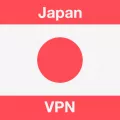Apps Home

Understanding the Importance of Secure and Private Connections
In an era where our lives are increasingly spent online, secure and private internet connections have become more than just buzzwords—they are essential components of digital life. Our reliance on the internet for everything from financial transactions and personal communications to professional interactions and entertainment has surged exponentially. However, this convenience and connectedness come with significant risks. Cybersecurity threats, ranging from hacking attempts and identity theft to surveillance and data harvesting, proliferate as our digital footprints expand. A secure and private connection acts as a critical barrier against these threats, safeguarding our information exchange from malicious entities and ensuring our personal and sensitive data remains confidential. At a technical level, such connections use advanced encryption protocols, which effectively turn your data into a secure code that is indecipherable to unauthorized users. This level of encryption is akin to a digital lock that can only be opened with a specific key, accessible only to intended parties. The evolution of virtual private networks (VPNs) exemplifies this need, often employing military-grade encryption standards like AES-256, which is regarded as unbreakable by today's computing power. Additionally, a secure connection often incorporates protocols such as OpenVPN or IKEv2/IPsec, which ensure not only that the data remains encrypted during transit but also that the connection itself is verified to prevent interception. With the implementation of secure connections, users thwart unauthorized entities from accessing their private web traffic, thereby maintaining privacy and mitigating risk. This assurance of security is not limited to personal use; businesses also rely on secure networks to protect proprietary information, maintain confidentiality agreements, and comply with regulations concerning data protection. Particularly in remote working environments, the importance of using a secure connection to access corporate networks cannot be overstated.
Features That Make a Connection Both Secure and Private
When discussing secure and private connections, the features that validate these attributes are multifaceted. At the core lies encryption, which conceals data in transit to prevent unauthorized access to your information. High-strength encryption, such as that offered by AES-256, is paramount, providing robust security against any attempts at decryption without the proper credentials. But encryption is only part of the equation. The choice of VPN servers is another crucial factor; these servers are strategically distributed across various countries, which not only facilitates faster connections but also enhances anonymity by distributing network traffic across multiple jurisdictions. This geopolitical distribution is part of what makes flexible server selection a valuable feature, as users can choose a server in a specific country to either optimize browsing speed or bypass geographical restrictions. Additionally, privacy policies play a significant role; a zero-log policy ensures that the VPN provider does not track or store users' browsing activities, effectively removing the possibility of data leaks from the service provider’s side. Coupled with DNS leak protection and the option of a kill switch—which automatically cuts the internet connection if the VPN connection drops—users are assured even greater levels of privacy and security. Another noteworthy feature is the ubiquitous availability of unlimited VPN bandwidth, allowing users to stream, browse, and download without facing throttling or caps, which maintains quality and speed. Furthermore, compatibility with multiple operating systems, from Android and iPhone to Windows, Linux, and Mac, guarantees that users have access to secure connections regardless of their device preference, making the use of VPNs a seamless aspect of everyday digital life.
Practical Steps to Ensure a Secure and Private Connection
Establishing a secure and private connection involves both selection and implementation of the appropriate tools and practices. The first practical step is to choose a reliable VPN service that meets your specific needs. Attributes to consider include server availability across desired locations, the strength of encryption standards, privacy policies regarding data logs, and ease of installation and use. Once a VPN service is selected, the installation process is relatively straightforward; downloading and installing the application across devices—be it on Android, iPhone, Windows, Linux, or Mac—is typically guided by user-friendly interfaces and instructions. After setup, users should be vigilant about activating the VPN service whenever accessing the internet, especially over public Wi-Fi networks, which are notoriously insecure. A practical approach is to configure the VPN to automatically connect whenever the device connects to the internet, thus ensuring constant protection. It's equally crucial to stay informed about software updates from the VPN provider, as updates often address vulnerabilities and enhance security protocols. Users can further augment their security stance by employing additional measures such as enabling multi-factor authentication on services that offer it, ensuring that router settings are optimized for security, and regularly changing passwords to maintain a strong security posture. Each of these steps collectively contributes to a more secure and private browsing experience.
The Theory Behind Secure Connection Technologies
The underlying theory of secure connection technologies is based on principles of cryptography and network security. Cryptography forms the backbone, with algorithms designed to transform readable data into encoded outputs, known as ciphertext, which is unintelligible without the proper decryption key. Techniques like symmetric-key cryptography, where the same key is used for both encryption and decryption, and asymmetric key cryptography, which utilizes a public and private key system, underpin the secure communication channels we rely on today. Beyond encryption, secure connection technologies incorporate tunneling protocols, which create a secure passage for internet traffic. These protocols, such as the OpenVPN and IKEv2/IPsec, ensure data integrity and authentication along the transmission path. OpenVPN, in particular, is a highly configurable open source solution renowned for its robust security and flexibility; it can utilize both Transport Layer Security (TLS) and Secure Sockets Layer (SSL) protocols for encryption, providing unparalleled protection. The architecture of secure connections also emphasizes the prevention of data leaks, with mechanisms like DNS leak protection ensuring that requests are routed through encrypted tunnels and preventing exposure of user information. Furthermore, secure connections can incorporate advanced security features—like perfect forward secrecy, which ensures session keys are ephemeral and not reliant on master keys—greatly enhancing security. Understanding these underlying technologies provides insight into the robustness of secure connections and reiterates their necessity in safeguarding digital communication.
Embracing Secure Connections: An Essential Step Forward
Adopting secure and private connections is more than a choice; it's a necessary step in cultivating a safe and efficient digital environment. As the digital landscape continues to evolve, so too do the threats that compromise our data and privacy. Whether for personal use or professional necessity, embracing secure connections acts as a baseline defense against a myriad of online threats, providing peace of mind and functional advantage. Personal users benefit from increased anonymity and data protection, with the ability to access region-restricted content and bypass censorship, thus augmenting their digital freedom. At an organizational level, secure connections are instrumental in protecting intellectual property, ensuring compliance with legal and regulatory standards, and maintaining client trust by safeguarding sensitive information. With the availability of reliable and comprehensive VPN services that offer cross-platform compatibility and features like unlimited bandwidth and advanced encryption, there is an accessible solution to secure online activities. To ensure that these connections are maintained effectively, downloading the necessary software is simple across platforms: get started by installing the software on Android, iPhone, Windows, Linux, or Mac. With heightened awareness and the right tools, stepping into the world of secure connections is not only advantageous, but a safeguard for the digital age.
Share Your Opinion
Your Email Will Not Be Published.
All Rights Reserved © Apps Home 2025




























Noah Nugent
When I downloaded it initially, the app worked fine and let me play games through it. This morning, it started asking for storage permissions to sa...
sleigh
It was working fine for a few days, but it suddenly started to ask for storage permission and there's no option to turn on storage permission in th...
Chirpy-chi
VPN was working fine until it didn't. Strangely it was just a few hours apart from my usage but suddenly I keep getting a pop up window that says O...
Ярослав Гуляев
At first it’s good, but after a couple of days it gives an error about the notification shortcuts function, although there is permission, and becau...
Noah
There seems to be an issue where there's no servers available to connect, I've tried restarting my phone, tried to reconnect to my network, cleared...